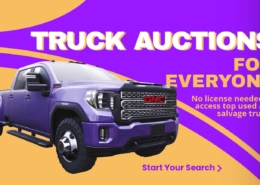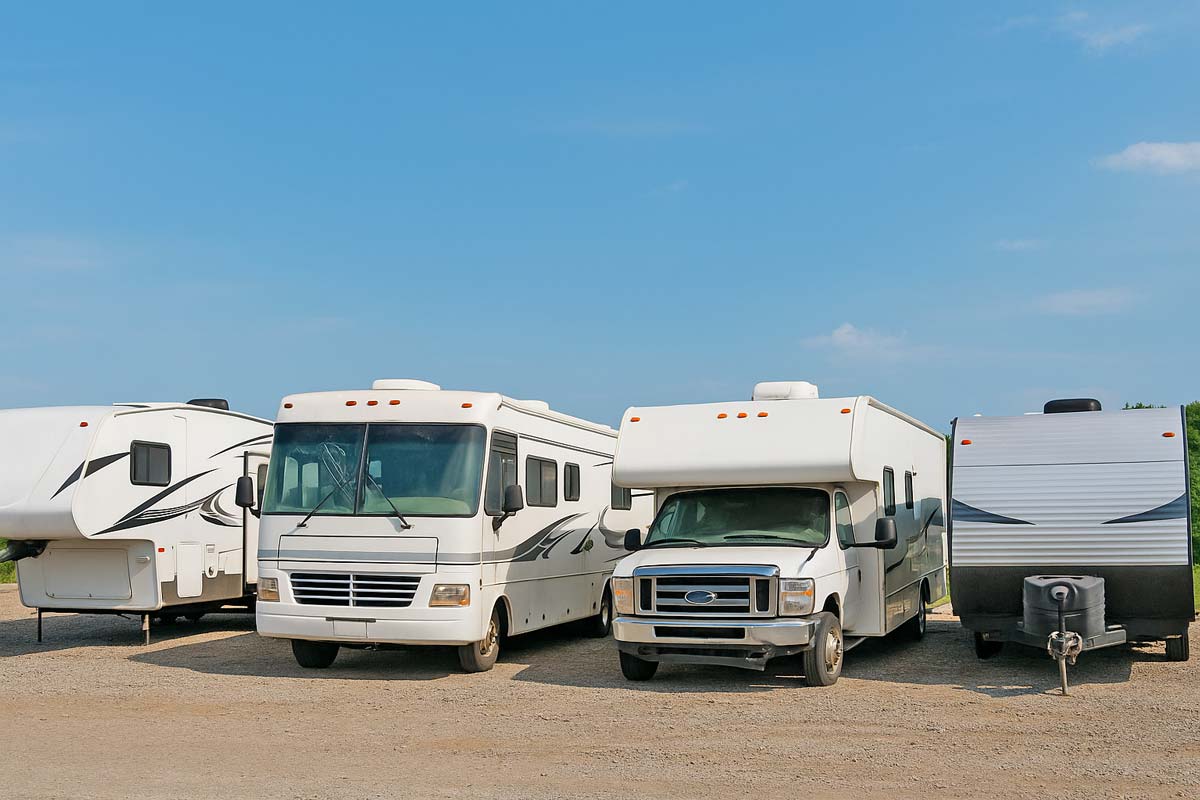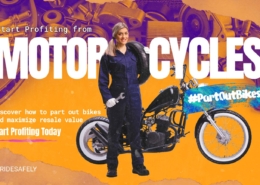 https://auction.ridesafely.com/images/2018/10/banner-truck-auctions-for-everyone.jpg
865
1440
RideSafely
/images/2025/01/ridesafely-logo.svg
RideSafely2025-09-26 12:10:232025-09-26 14:53:10How to Buy Your Next Truck at an Auto Auction
https://auction.ridesafely.com/images/2018/10/banner-truck-auctions-for-everyone.jpg
865
1440
RideSafely
/images/2025/01/ridesafely-logo.svg
RideSafely2025-09-26 12:10:232025-09-26 14:53:10How to Buy Your Next Truck at an Auto AuctionWhen you buy salvage recreational vehicles (RVs) online, it’s like unlocking a treasure chest. Inside, you’ll find not just steep discounts and creative possibilities, but also the potential for significant profit. Picture a rugged travel trailer waiting for a weekend warrior’s touch, a luxury motorhome with a bruised exterior but a heart of polished walnut cabinets, or a fifth-wheel camper ready for a cross-country revival. These are not just vehicles, but opportunities for financial gain.
Salvage auctions are where these opportunities live. In these marketplaces, models that once commanded high showroom prices often sell for a fraction of their original value. But the key to a successful purchase is not just the price. It’s crucial to understand the types of salvage RVs available and their unique repair potential. This knowledge can mean the difference between a wise investment and an expensive learning curve.
Online salvage auctions are open to a wider audience than many realize. Even if you’re not a dealer, you can still participate—learn more about who can buy at online car auctions.
Understanding Salvage RVs
A salvage RV is a recreational vehicle that has been damaged or deemed a total loss by an insurance company. Reasons for this designation include:
- Collision damage
- Flood or storm damage
- Fire damage
- Theft recovery
- Hail or cosmetic damage
- Vandalism
Once repaired, these vehicles can serve as incredibly affordable vacation options, income-generating rentals, or profitable resale opportunities. The possibilities are endless, and the potential for return on investment is significant.
Many buyers are surprised to find they can buy vehicles at auctions without a bid card or dealer license, making it easier than ever to secure a salvage RV.
1. Salvage Class A Motorhomes
Class A motorhomes are the largest and most luxurious RV type. Built on heavy-duty bus or commercial truck chassis, they often feature residential-style amenities.
Typical Damage Types:
- Side-impact collision damage
- Engine or drivetrain issues
- Roof leaks from storm damage
- Interior smoke or fire damage
Why Buy Salvage Class A:
- High resale value after repair
- Premium interiors and space
- Ideal for long-term travel or rental income
2. Salvage Class B Camper Vans
Class B RVs—also known as camper vans—are compact, self-contained units built on standard van chassis.
Common Damage:
- Front-end collision
- Hail-damaged roof panels
- Theft recovery with missing components
Advantages:
- Easier to repair than larger RVs
- Excellent fuel economy compared to Class A and C
- Strong resale demand for van life enthusiasts
3. Salvage Class C Motorhomes
Class C motorhomes strike a balance between Class A luxury and Class B maneuverability. Recognizable by their cab-over sleeping area, they are built on a truck chassis.
Damage Profiles:
- Front cab structural damage
- Water damage from roof leaks
- Interior fire damage
Buyer Benefits:
- Affordable repair options
- Wide parts availability
- Popular with families and rental companies
4. Salvage Travel Trailers
Travel trailers range from lightweight teardrops to full-size towable models. They offer flexibility in towing and setup.
Typical Salvage Conditions:
- Siding and frame damage from accidents
- Flood or water damage
- Interior smoke or fire damage
Why Consider:
- Lower cost than motorized RVs
- Can be towed by various vehicle types
- Flexible customization potential
5. Salvage Fifth-Wheel Trailers
Fifth-wheel trailers are towable RVs with a raised front section that attaches to a pickup truck bed.
Common Damage:
- Frame or hitch damage
- Roof collapse from snow load
- Sidewall delamination from water damage
Advantages:
- Spacious interiors
- Excellent for seasonal living
- Lower cost per square foot than motorized RVs
6. Salvage Pop-Up Campers
Pop-up campers are lightweight, collapsible trailers ideal for quick getaways.
Damage Issues:
- Torn canvas or soft-wall panels
- Frame corrosion
- Roof lift system failure
Benefits:
- Very affordable to repair
- Easy storage and towing
- Great entry-level RV option
7. Salvage Toy Haulers
Toy haulers are RVs designed with a rear garage for transporting ATVs, motorcycles, or other recreational gear.
Damage Types:
- Rear ramp door damage
- Structural frame issues from heavy loads
- Fire damage in the garage section
Why Buy:
- Dual purpose for camping and gear transport
- Strong demand among outdoor enthusiasts
- High profit potential after repairs
8. Salvage Truck Campers
Truck campers mount directly onto the bed of a pickup truck, offering mobility and off-road capability.
Damage Scenarios:
- Roof and wall punctures from branches or accidents
- Interior water damage
- Structural frame wear
Advantages:
- Compact and versatile
- Suitable for remote camping
- Affordable repair and resale options
Beyond RVs, you can explore the diverse range of vehicles available at RideSafely to expand your buying opportunities.
Evaluating Damage and Repair Costs
When purchasing a salvage RV, buyers should:
- Inspect frame integrity
- Check for mold or water intrusion
- Assess engine and drivetrain condition (for motorized RVs)
- Estimate repair costs, including parts and labor
- Factor in title branding and registration requirements
If your goal is to restore and resell, you can apply strategies similar to those outlined in our guide on salvage car auctions – turn profits while you learn.
Salvage RV Purchase Process
Step-by-Step Guide: Buying a Salvage RV at Online Auctions
| Step | Stage | What To Do | Pro Tips | Who Typically Handles | Key Docs & Checks |
|---|---|---|---|---|---|
| A | Start | Define budget, timeline, and intended use (travel, rental, flip). | Set a firm max spend including fees, transport, and repairs. | Buyer | Budget plan; shortlist of RV types |
| B | Browse Online Salvage Auctions | Search reputable auction platforms for salvage RV listings. | Filter by title status, damage type, location, and run/drive condition. | Buyer | Auction account; identity verification |
| C | Select Desired RV Type | Choose Class A/B/C, travel trailer, fifth-wheel, pop-up, toy hauler, or truck camper. | Match tow capacity and storage needs; verify parts availability for the brand. | Buyer | Vehicle shortlist; tow vehicle specs (if towable) |
| D | Review Damage Reports & Photos | Examine photos, damage notes, and option lists carefully. | Zoom in on roof, frame, slide-outs; look for water intrusion, delamination, soot. | Buyer / Third-party inspector | Condition report; photo gallery; optional inspection report |
| E | Calculate Repair Costs | Estimate parts, labor, paint, interior, and potential engine/drivetrain work. | Add 15–25% contingency; include title/registration, storage, and tax. | Buyer / Mechanic / RV tech | Parts quotes; labor estimates; transport quote |
| F | Check Title & Legal Requirements | Confirm title brand (Salvage/Rebuilt), state rebuild process, emissions, and inspections. | Call your DMV; verify if rebuilt inspection and receipts are required. | Buyer | Title status; state rebuild checklist; insurance pre-quote |
| G | Place Auction Bid | Enter pre-bid and set your absolute maximum before live bidding. | Stick to your cap; factor buyer fees and any proxy bidding increments. | Buyer | Bid confirmation; payment method on file |
| H | Win Auction & Arrange Transport | Pay within required window; schedule pickup or shipping. | Use insured RV/flatbed transport; confirm yard hours and release forms. | Buyer / Transporter | Bill of sale; gate pass/release; transport BOL |
| I | Repair & Inspect RV | Complete structural, mechanical, electrical, and interior repairs; fix leaks. | Document all work with photos and receipts for rebuilt inspections and resale. | Buyer / Certified RV tech / Body shop | Repair invoices; parts receipts; alignment/pressure tests; electrical checks |
| J | Use for Travel, Rent, or Resell | Register and insure (or pass rebuilt inspection if required) and deploy your strategy. | For rentals, add safety checks and pre-trip checklists; for resale, disclose title brand. | Buyer / Insurer / DMV | Registration; insurance policy; rebuilt title (if applicable) |
Quick Reminders: Include all fees in your max bid, confirm title requirements early, and budget a contingency for hidden damage—especially water intrusion and roof/slide-out repairs.
Understanding title classifications is key. Our detailed breakdown of 10 vehicle title types explained can help you prepare before you buy.
Tips for Bidding at Online Salvage Auctions
- Research Comparable Sales: Understand current market value for repaired units.
- Set a Maximum Bid: Avoid overbidding by setting limits before the auction begins.
- Review Seller Details: Prefer reputable auction platforms with verified listings.
- Plan Transport in Advance: Factor towing or shipping costs into your budget.
- Inspect if Possible: Some auctions allow pre-bid inspections or offer detailed third-party reports.
Maximizing Value from a Salvage RV
- Convert into a profitable short-term rental
- Use for seasonal travel without high purchase costs
- Restore and resell for profit
- Customize for specific lifestyle needs
Conclusion
Online salvage auctions provide access to a diverse selection of recreational vehicles at competitive prices. By understanding the types of salvage RVs available, assessing damage accurately, and bidding strategically, buyers can secure exceptional deals that deliver both adventure and value.
Ready to start your search? Check out salvage RVs for sale at auction: own an RV for less and bid on your next adventure vehicle today.
Frequently Asked Questions About Buying Salvage RVs Online
What is a salvage RV?
A salvage RV is a recreational vehicle that an insurance company has declared a total loss due to damage from collision, weather, theft recovery, fire, or other incidents. These vehicles can often be repaired and returned to service.
Can I buy a salvage RV without a dealer license?
Yes, if it is a public auction. Dealer-only auctions and most online salvage auctions require a dealer license, but platforms like RideSafely let the public bid nationwide without one.
What types of salvage RVs are available at auctions?
You can find Class A, Class B, and Class C motorhomes, travel trailers, fifth-wheel trailers, pop-up campers, toy haulers, and truck campers in various conditions.
How do I know if a salvage RV is worth repairing?
Evaluate frame condition, water damage, mechanical issues, and estimated repair costs. Review detailed photos, auction condition reports, and if possible, get a third-party inspection before bidding.
Are there financing options for salvage RVs?
Financing is limited for salvage-titled vehicles, but some buyers use personal loans, credit unions, or pay in cash. Always confirm lender requirements before bidding.
Can I register and insure a salvage RV?
Yes, but you’ll likely need to complete repairs, pass a state inspection, and apply for a rebuilt title before registration. Insurance options may be more limited compared to clean-titled RVs.






Leave a Reply
Want to join the discussion?Feel free to contribute!